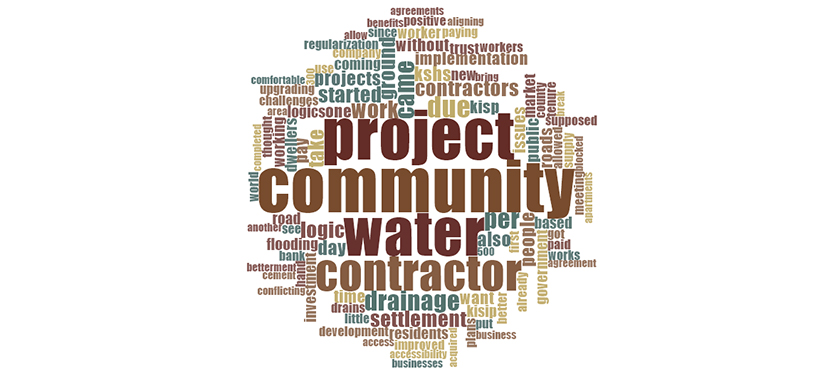Department Environmental Social Sciences
Sanitation upgrading strategies for informal settlements (SUSIS)

We seek to understand how formal and informal institutions, planning procedures and resources drive or constrain informal settlements upgrading in Sub Saharan Africa cities.
As informal settlements persistently characterize cities, states and other actors have taken the challenge of reducing their presence and growth, earlier through evictions, followed by resettlement via housing schemes and much later stepwise or insitu upgrading via single sector or multi sector provision of basic infrastructure and services. These efforts have however been marred by institutional, planning and resource constraints.
To understand these constraints, we explore the role and effect of regulations, norms, culture, cognition and resources on informal upgrading processes with the intention of identifying which, how and in what combinations these factors contribute to success or failure of the upgrading processes.
Empirically, we consider informal settlements of cities and secondary towns in Kenya and South Africa. These locations have vibrant upgrading projects with a mix of both failure and success in outcomes, delivering different basic service offerings to the informal settlement dwellers and using different approaches to upgrading. They therefore form good grounds for comparison.
Overall, this project is significant to policy makers, development organizations and designers since it exposes institutional and planning gaps that exist in the current informal settlement upgrading strategies and the coupling points that can be explored between formal and informal institutions to ensure successful future upgrading projects. Academically, it contributes to understanding of interactions between prevailing institutions and newly introduced individual service or grouped offerings (service and sector regimes) with the aim of contributing conceptually to sustainability transitions, institutions and planning literature.
